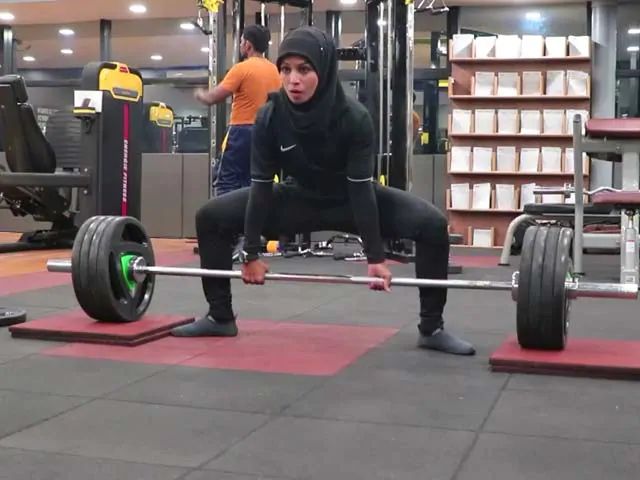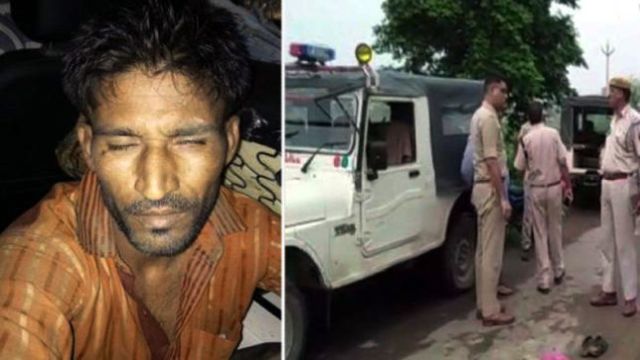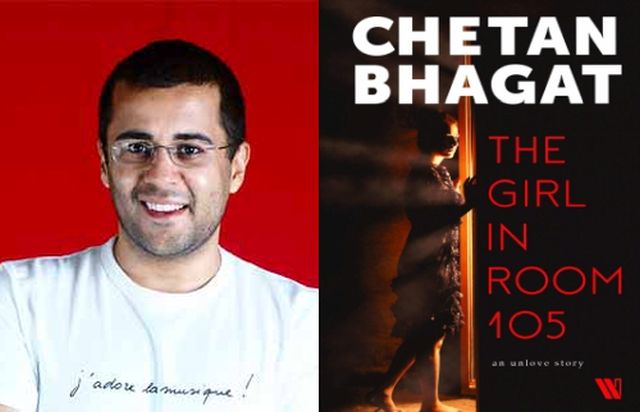
by admin | May 25, 2021 | Entrepreneurship, News, Women Entrepreneur
 By Sanu George,
By Sanu George,
Vadakara (Kerala) : When 23-year-old Majiziya Bhanu took to the stage to compete in the women’s segment of the Mr Kerala competition in Kochi earlier this year, all eyes were on her — never before had a bodybuilder wearing a hijab (Muslim head scarf) participated in the event. Proving that hijab is no hurdle for her or any other woman, she went on to win the competition.
Bhanu believes that the hijab is never an obstacle for a woman with burning passion, and if a woman is free to show her body, she should be free to cover it as well. While Bhanu is not the only Muslim woman in the world of arm-wrestling and powerlifting, she is yet to see another woman in the field who performs in a hijab.
“It is only after their names are announced that one realises that the contestant is a Muslim,” she said.
“I feel proud to wear the hijab, which is a part of my identity. It does not limit me in any way but gives me dignity and strength.”
It took Bhanu just about two years to transform from being an ordinary dental student to a local celebrity, not just in her sleepy village here, but across Kerala. She has been selected three times as the strongest woman of the state by the Kerala State Powerlifting Association.
In the two years since she began her career, she has already won national medals in powerlifting and arm-wrestling, while also continuing her dental training. And be it in practice or in competitions, she always wears her hijab.
“In the initial days, men used to stare at me as I had my hijab on. But soon they realised that I was as serious as them in my workouts. Then all the eyes disappeared,” Bhanu told IANS.
While she was always interested in sports, there were hardly any facilities available in her village. But that did not stop her. Every day after her dental classes, she used to travel 60 km by train to Kozhikode to a gymnasium.
“I used to return around 9 pm. Initially, it was tough, but I slowly gained the confidence to travel alone and, eventually, it became a part of my routine,” said the final year dental student
Bhanu said that, but for her parents’ strong support, she would not have been able to achieve what she did. “I hail from a very orthodox village here and my parents agreed to let me pursue my passion of bodybuilding.”
Today, Bhanu is an inspiration in her village for many other girls like her. After her success, the village has now got its own gym, which is frequented by women just as much as men.
“Many young girls and women have started coming to me to seek advice on what needs to be done as they also want to do what I am doing. Now there is a gym in my village itself,” she said, adding that now she goes to Kozhikode only three to four times a month.
Bhanu today is extremely busy as she is getting ready to participate in the World Arm Wrestling Championship 2018 in Turkey next month.
“I never knew I could make it as funds was needed for the trip. I did knock on quite a few doors and finally managed — a few well-wishers have sponsored my trip. At times, when I went scouting for sponsors, I felt that some did not wish to sponsor me as I was a Muslim woman,” said Bhanu.
And of her future plans, she said her first goal is to finish her studies as it was her parents’ dream to make her a medical professional.
“Once I finish it, then I will pursue my dream of setting up an academy which will be a multi-disciplinary one, including martial arts, powerlifting, arm-wrestling and bodybuilding. It would give special importance to girls. I am sure I will be able to pursue my passion and wish to empower women,” Bhanu added with confidence.
(The weekly feature series is part of a positive-journalism project of IANS and the Frank Islam Foundation. Sanu George can be contacted at sanu.g@ians.in)
—IANS

by admin | May 25, 2021 | News, Politics
 By Archana Sharma,
By Archana Sharma,
Jaipur : A 25-page chargesheet filed by the police on Friday in the Rakbar lynching case has created a fresh controversy with Ramgarh BJP MLA Gyandev Ahuja saying that ‘gaurakshaks’ will challenge it in the court as “it does not say a word” about “cow smugglers” and the policemen charged with dereliction of duty.
Rakbar Khan was killed on the intervening night of July 20-21 in Lalawandi village of Ramgarh after being beaten up by a mob on suspicion of cow smuggling. Later Rajasthan Home Minister Gulabchand Kataria had said that the victim seemed to have died in police custody.
A badly injured Rakbar was taken to a police station from where he was shifted to a hospital after over three hours of the incident. He was later declared brought dead.
The Chief Judicial Magistrate’s court of Alwar on July 24 had ordered a judicial inquiry into the incident and referred the case to Additional Chief Judicial Magistrate (ACJM), Rajgarh, for investigation.
Ahuja on Saturday termed the chargesheet as one-sided as it “fails” to mention about the suspended cops and the cow smugglers.
“This fraud chargesheet shall be taken to court by local gaurakshaks,” he said. “Some people from Ramgarh have called me to discuss legal matter, but as I am out of town, they will take the case to the court,” he said.
“The chargesheet is injustice to those innocents who have been held accused for their only mistake that they alerted the police and got the cow smugglers arrested,” said Ahuja.
The chargesheet says three persons — Paramjeet Singh, Dharmednra Yadav and Naresh — have been booked under Section 302 for murder, Section 323 (causing hurt) and 341 (wrongful restraint).
On Saturday Ashok Chouhan, Deputy Superintendent of Police, Alwar, said that as the police is under investigation, their role is not mentioned in the chargesheet.
(Archana Sharma can be contacted at arachana.g@gmail.com)
—IANS

by admin | May 25, 2021 | News, Politics
 New Delhi : Amnesty International on Saturday castigated the Adityanath government in Uttar Pradesh for doing little to ensure justice and rehabilitation for the survivors of the 2013 Muzaffarnagar communal violence.
New Delhi : Amnesty International on Saturday castigated the Adityanath government in Uttar Pradesh for doing little to ensure justice and rehabilitation for the survivors of the 2013 Muzaffarnagar communal violence.
On the fifth anniversary of the deadly riots in Muzaffarnagar district that claimed at least 60 lives and displaced over 50,000 people, the Amnesty International India blamed the state government’s apathy for seven gang-rape survivors still awaiting justice and the displaced continuing to look for rehabilitation.
“The Uttar Pradesh government has forgotten the riot survivors of Muzaffarnagar and Shamli. The state has done very little to redress the injustice they have faced. The government’s attempt at rehabilitation and compensation has been woefully inadequate”, said Asmita Basu, Programmes Director, Amnesty International India.
She said justice remained elusive for the seven gangrape survivors who have received little assistance from authorities to rebuild their lives and livelihoods.
“There has not been even one conviction in any of the seven cases so far. In 2016, one of the survivors died during childbirth,” she said.
Quoting one of the survivors, a mother of five, Amnesty International India said the victims have lost all hope of getting justice and are now hoping for survival of their families.
“Their rapists are out in the open for years now. Women are scared to pursue their cases and they cannot be blamed for this. There are media reports of compromises being made and of money being offered and accepted by many of the seven families. We need to understand the realities in which these women have survived all these years. They are scared and have lost all faith in the system,” said Rehana Adeeb, an activist working with the survivors.
THe rights body said an overwhelming majority of families in resettlement colonies lack access to basic services like clean drinking water and drainage facilities.
“The Uttar Pradesh government’s callous treatment of Muzaffarnagar and Shamli riot survivors is a breach of its commitment to uphold basic constitutional values. The riot survivors have been forced to live in a vicious cycle of poverty and discrimination. The Uttar Pradesh Chief Minister must ensure that the voices of the survivors are heard immediately and justice is delayed no further”, added Basu.
—IANS

by admin | May 25, 2021 | News, Politics
 New Delhi : The Supreme Court on Friday asked the Centre and States to give wide publicity on radio, television and other media platforms to its direction that lynching and mob violence of any kind will invite serious consequence under the law.
New Delhi : The Supreme Court on Friday asked the Centre and States to give wide publicity on radio, television and other media platforms to its direction that lynching and mob violence of any kind will invite serious consequence under the law.
The top court by its July 17 judgment had directed the Central and the state governments to “broadcast on radio and television and other media platforms including the official websites of the Home Department and Police of the states that lynching and mob violence of any kind shall invite serious consequence under the law.”
The bench of Chief Justice Dipak Misra, Justice A.M. Khanwilkar and Justice D.Y. Chandrachud directed the Centre and the state governments to carry out its July 17 direction as Attorney General K.K. Venugopal informed the court that a Group of Ministers (GoM) is considering the nature of legislation to be brought to deal with the crime of lynching by the vigilante groups.
The top court by its July 17 judgment had recommended to Parliament to create a separate offence for lynching and provide adequate punishment for the same as a special law would instil a sense of fear for law among the people involved in vigilantism and lynching.
Directing all the state governments and Union Territories to comply with its July 17 direction that provides for preventive, remedial and punitive steps to deal with the lynching crime, the court said that the home secretaries of the states and the UTs that would fail to file report on the compliance of its direction would be directed to appear before the court in person.
The court order came as senior counsel Indira Jaising told the court that only nine States and two Union territories have filed the compliance report.
Besides this, the court sought report from Rajasthan on the steps taken backed with documents against the police officials for delay in taking Rakbar Khan, a victim of lynching to hospital resulting in his death.
Rakbar Khan, 28, was beaten to death by suspected cow vigilantes in Lalwandi village of Ramgarh district in Rajasthan on July 24.
Rajasthan on Thursday informed the court that SHO of the police station concerned has been suspended. The court was also informed that three constables of the police station have been transferred to police lines.
—IANS

by admin | May 25, 2021 | Interviews
 By Saket Suman,
By Saket Suman,
New Delhi : Bestselling author Chetan Bhagat, who has taken a leap of faith in his upcoming novel “The Girl in Room 105” in which the protagonists are a Kashmiri Muslim girl and her lover from an RSS-affiliated family, says that Muslims, particularly from Kashmir, are victims of “unintentional racism” on a daily basis in the Indian mainstream.
“After having researched and written this book, it is my belief that the first step to understanding things would be to know what is happening. Most Indians don’t know a thing about Kashmir. All they know (about) is Indian Army and terrorists. I think that is like a very narrow-minded way of looking at the problem,” Bhagat, whose novels have sold hundreds of thousands of copies and have been inspiration for blockbuster Bollywood movies like “Three Idiots”, told IANS in an interview here.
He related that once he was on a panel interviewing MBA candidates for a business school when one of the aspirants introduced himself and said: “Sir, I am from Kashmir but I am not a terrorist.” On another occasion, Bhagat was caught in traffic on Mumbai’s Western Express highway while on way to boarding a flight.
“I didn’t know what to do. I got out of my car and asked a young boy on a bike to drop me to the airport. He took me but said that I will drop you a little further from the airport because there are some cops there. I enquired what the issue was. His reply: ‘I am a Muslim guy on a bike at the airport, they will trouble me’,” Bhagat said.
“If I am not a Muslim I don’t realise what they go through. I know there are no riots and people are not burning each other but it is this daily feeling that I better maintain a low profile, stay away from the crowd, that is more disturbing. I think that should not be the case in a free country. People need to understand that our country is becoming too polarised,” he quipped.
He acknowledged that there are some “terrible things” happening but the bigger issue, according to the author, is what the Muslims go through on a daily basis.
“I am aware that there are complex issues but broadly you first need to talk to them and they need to talk to you. The more Kashmiri youths interact with the rest of the country and vice versa, the better our prospects are.
“They don’t have cinema there, their internet goes down so many times, I mean that’s not the way the people of our own country deserve to live, right? Just because they are from Kashmir, they live with it everyday. There is an implied, unintentional racism happening all the time,” Bhagat maintained.
He said that books are “one of the best mediums” of bringing about a change.
“Right now, people see Kashmiris, and Kashmiri Muslims particularly, and think that they are different from us. But the moment they will read my story, where a Kashmiri Muslim girl is living in a hostel and doing things that any of us do, they will realise that Kashmiri Muslims are also just like me and you…It will give a clearer understanding of the issue than mere statistics and experts in TV panels can. The aim is to familiarise people with the Kashmir issue,” he said.
The father of the male protagonist in “The Girl in Room 105” is a member of the Rashtriya Swayamsevak Sangh (RSS).
“I think that in itself sparks a discussion. An author’s job is to highlight and mirror the society. I am sure there are many people who know much more about Kashmir than I do but my point is an average Indian is also not an expert. Without judgement, I have tried to present to my readers that you see if this is the country you want to create,” he said.
The book, published by Westland, will be released in October and is currently available for pre-order on Amazon.
“A fair and just society is important. It doesn’t matter what the majority opinion is. You can’t have a system work if you go by what the majority thinks all the time. Justice is justice and the weakest has to be protected first but this is being questioned right now,” Bhagat said, while also pointing out that it is difficult to maintain “a Centrist point of view” in India today.
(Saket Suman can be contacted at saket.s@ians.in)
—IANS





